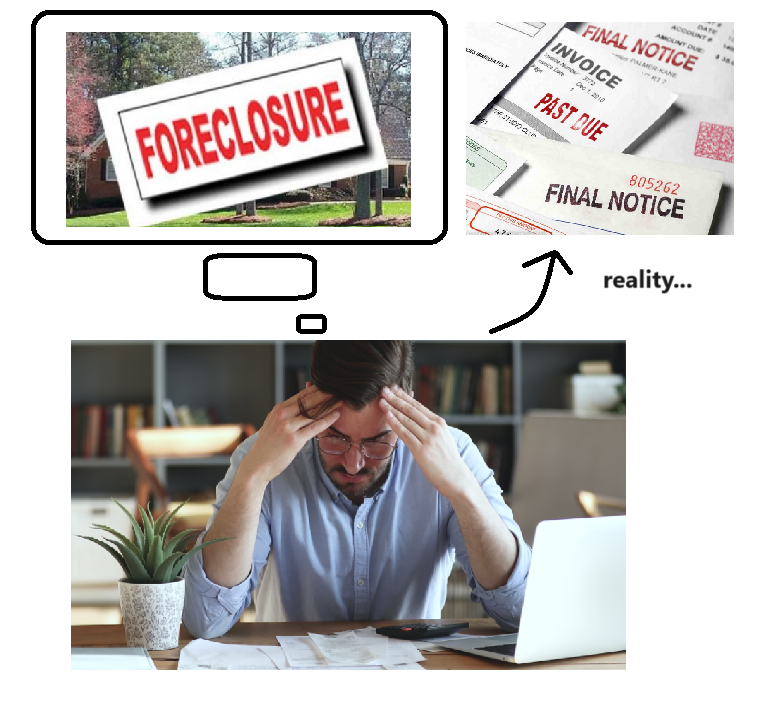Karl Construction Ltd v Palisade Properties plc SLT 2002 312
Citation: Karl Construction Ltd v Palisade Properties plc SLT 2002 312
Rule of thumb: If you default on your mortgage repayment, how quickly can your house get repossessed? There are several regimented steps which a bank has to follow to give you a chance to restructure & repay, and a Lawyer can help ensure they do, and if they do not do this before they repossess your house then you are entitled to damages.
Judgment:
When an individual fails to make a mortgage repayment then there are many steps to be followed before repossession of the property can take place. The facts of this case were that a company defaulted on their mortgage but argued that they did not know about it and did not have sufficient time to take measures to amend the situation. It was held that just because someone defaulted on a loan repayment the bank did not necessarily have the automatic right to crystallise the guarantee they had over the house – the Court held that additional checks and processes had to be carried out before this was done. The Courts held that when law is considered in accordance with human rights law about the right to property, then banks should only be allowed to seize properly when they have properly followed all of the correct legal steps to ensure that foreclosure was the only possible option. The Court held that where the bank applied to the Court to raise insolvency proceedings and seek to obtain an order of foreclosure to enforce their debt, then this would ensure that the process was complied with properly. Where the bank did not enforce the mortgage loan repayments terms properly, and someone was wrongfully removed from their property where they were not actually in full breach of their loan repayments as yet, then the bank would have to pay damages to those wrongfully removed from their home, “For the reasons discussed previously, I am of opinion that inhibition on the dependence will not be automatically available, even in cases where it seems possible to draw a clear inference of practical insolvency; the motion for inhibition would still have to go before a judge, who would require to be satisfied that the pursuer had a prima facie case and that there was a specific justification for inhibition on the dependence... (paragraph 66)... “(E)ven with the foregoing safeguards, it may frequently turn out that protective attachment is not objectively justified. In such a case there is a real risk of significant detriment to the defender. In my opinion, if protective attachment is recognised as a remedy only available if special circumstances are shown, but the remedy turns out not to be objectively justified, the defender should be entitled to compensation if he suffers loss and consequence”, Lord Drummond Young at 58

Warning: This is not professional legal advice. This is not professional legal education advice. Please obtain professional guidance before embarking on any legal course of action. This is just an interpretation of a Judgment by persons of legal insight & varying levels of legal specialism, experience & expertise. Please read the Judgment yourself and form your own interpretation of it with professional assistance.

